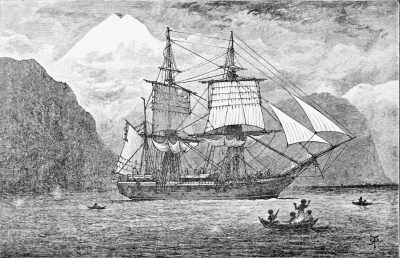Charles Robert Darwin (; DAHR-win; 12 February 1809 19 April 1882) was an English naturalist, geologist, and biologist, widely known for contributing to the understanding of evolutionary biology. His proposition that all species of life have descended from a common ancestor is now widely accepted and considered a fundamental concept in science. In a joint publication with Alfred Russel Wallace, he introduced his scientific theory that this branching pattern of evolution resulted from a process that he called natural selection, in which the struggle for existence has a similar effect to the artificial selection involved in selective breeding. Darwin has been described as one of the most influential figures in human history, and he was honoured by burial in Westminster Abbey.Darwin published his theory of evolution with compelling evidence in his 1859 book On the Origin of Species. By the 1870s, the scientific community and a majority of the educated public had accepted evolution as a fact. However, many favoured competing explanations that gave only a minor role to natural selection, and it was not until the emergence of the modern evolutionary synthesis from the 1930s to the 1950s that a broad consensus developed in which natural selection was the basic mechanism of evolution. Darwin's scientific discovery is the unifying theory of the life sciences, explaining the diversity of life.Darwin's early interest in nature led him to neglect his medical education at the University of Edinburgh; instead, he helped to investigate marine invertebrates. Studies at the University of Cambridge (Christ's College) encouraged his passion for natural science. His five-year voyage on HMS Beagle established him as an eminent geologist whose observations and theories supported Charles Lyell's conception of gradual geological change, and publication of his journal of the voyage made him famous as a popular author.Puzzled by the geographical distribution of wildlife and fossils he collected on the voyage, Darwin began detailed investigations and in 1838 conceived his theory of natural selection. Although he discussed his ideas with several naturalists, he needed time for extensive research, and his geological work had priority. He was writing up his theory in 1858 when Alfred Russel Wallace sent him an essay that described the same idea, prompting immediate joint publication of both their theories. Darwin's work established evolutionary descent with modification as the dominant scientific explanation of diversification in nature. In 1871 he examined human evolution and sexual selection in The Descent of Man, and Selection in Relation to Sex, followed by The Expression of the Emotions in Man and Animals (1872). His research on plants was published in a series of books, and in his final book, The Formation of Vegetable Mould, through the Actions of Worms (1881), he examined earthworms and their effect on soil.
HMS Beagle was a Cherokee-class 10-gun brig-sloop of the Royal Navy, one of more than 100 ships of this class. The vessel, constructed at a cost of £7,803 (roughly equivalent to £638,000 in 2018), was launched on 11 May 1820 from the Woolwich Dockyard on the River Thames. Later reports say the ship took part in celebrations of the coronation of King George IV of the United Kingdom, passing through the old London Bridge, and was the first rigged man-of-war afloat upriver of the bridge. There was no immediate need for Beagle so she "lay in ordinary", moored afloat but without masts or rigging. She was then adapted as a survey barque and took part in three survey expeditions.
The second voyage of HMS Beagle is notable for carrying the recently graduated naturalist Charles Darwin around the world. While the survey work was carried out, Darwin travelled and researched geology, natural history and ethnology onshore. He gained fame by publishing his diary journal, best known as The Voyage of the Beagle, and his findings played a pivotal role in the formation of his scientific theories on evolution and natural selection.

1835Sep, 15
HMS Beagle, with Charles Darwin aboard, reaches the Galápagos Islands. The ship lands at Chatham or San Cristobal, the easternmost of the archipelago.
Choose Another Date
Events on 1835
- 14Feb
Latter Day Saint movement
The original Quorum of the Twelve Apostles, in the Latter Day Saint movement, is formed in Kirtland, Ohio. - 15Sep
Charles Darwin
HMS Beagle, with Charles Darwin aboard, reaches the Galápagos Islands. The ship lands at Chatham or San Cristobal, the easternmost of the archipelago. - 20Sep
Ragamuffin War
Ragamuffin rebels capture Porto Alegre, then capital of the Brazilian imperial province of Rio Grande do Sul, triggering the start of ten-year-long Ragamuffin War. - 2Oct
Battle of Gonzales
The Texas Revolution begins with the Battle of Gonzales: Mexican soldiers attempt to disarm the people of Gonzales, Texas, but encounter stiff resistance from a hastily assembled militia. - 28Oct
Declaration of the Independence of New Zealand
The United Tribes of New Zealand is established with the signature of the Declaration of Independence.

 English
English  español
español  français
français  português
português  русский
русский  العربية
العربية  简体中文
简体中文 